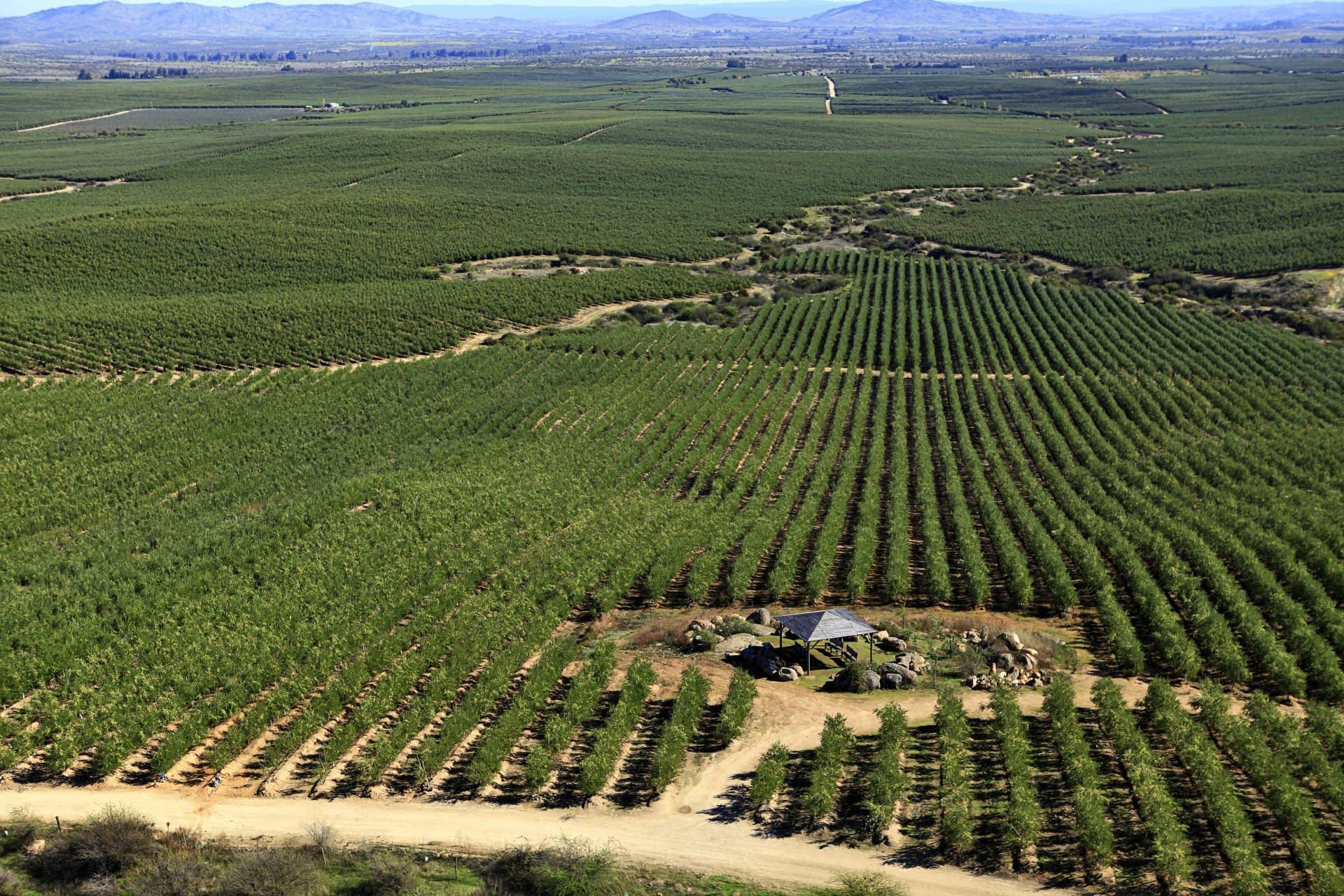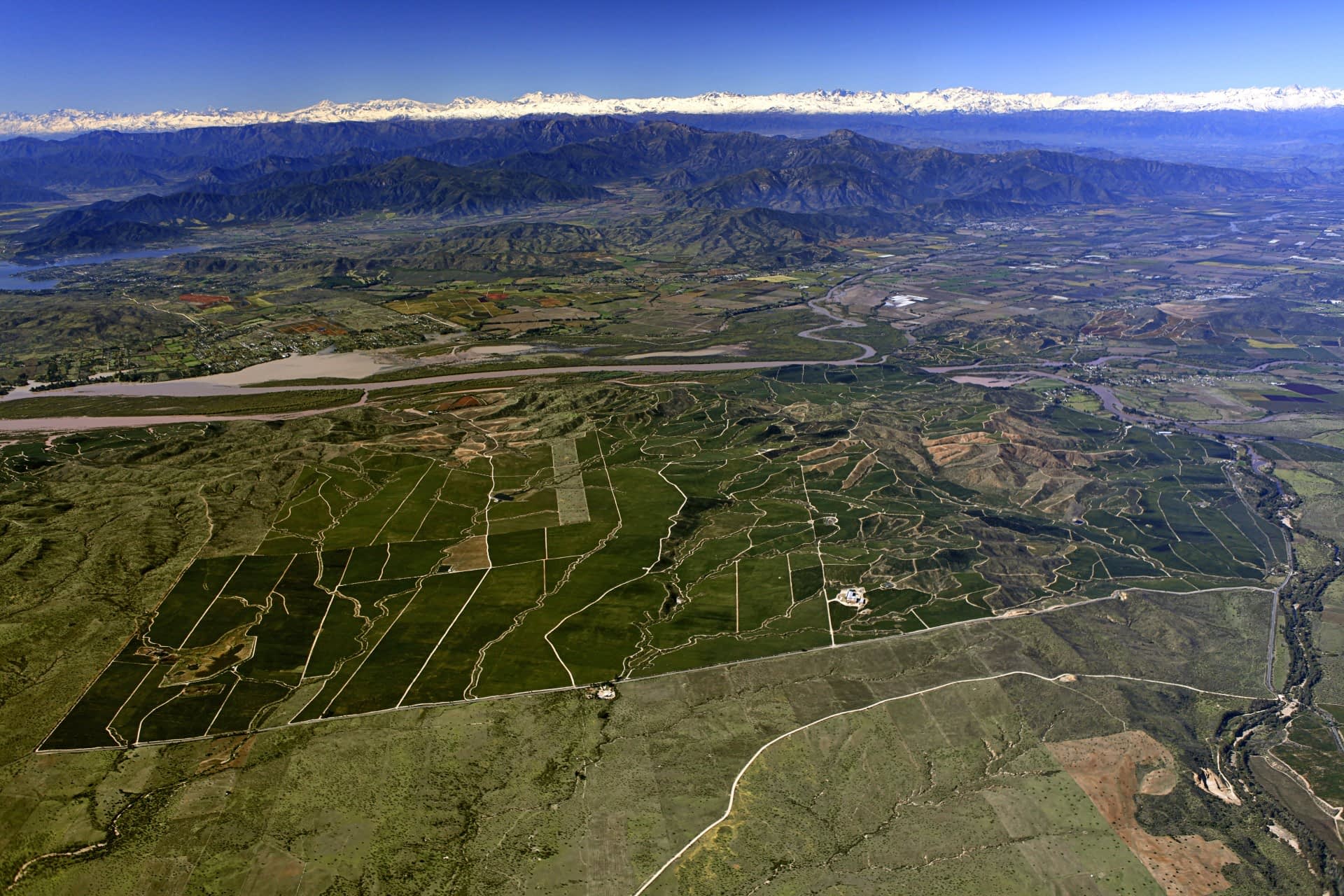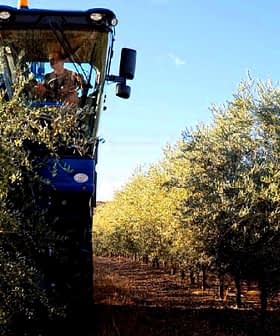How a Chilean Disrupter Shook Up the Country's Olive Sector
Chile’s leading olive oil producer came to fruition after a roadtrip through Spain. It is now leading the way in precision agriculture and sustainability.
 (Photo: Olisur)
(Photo: Olisur) In 2001, Alfonso Swett, the Chilean businessman and entrepreneur, was driving through sprawling olive farms in Spain when he had an epiphany.
“He started to realize that in Chile, the conditions are similar, specifically in the middle of the country,” Claudio Lovazzano, the marketing manager of Olivos del Sur, told Olive Oil Times.
We started using precision agriculture in 2018 when we realized that the drought was becoming a huge problem. We needed to find an alternative way to manage our resources better.
At the time, olive growing in the country was parochial in the very literal sense of the word. While olive trees had been brought to Chile by the missionaries who followed the conquistadores in the 1500s, their cultivation had not expanded far beyond the devoutly Catholic country’s monasteries and parishes.
However, the turn of the 21st century was also a moment when wineries were expanding into the fertile hills of the country’s central valley. Vintners saw the potential of the terroir and Mediterranean climate.
See Also:Producer ProfilesSwett – who has led five companies, advised the government on foreign policy and teaches at the prestigious Pontificia Universidad Católica de Chile – sensed the moment was ripe to begin planting olive trees to produce olive oil.
By 2004, he planted his first olive trees in high density. In 2007, Olivos del Sur harvested for the first time.
“The idea was to be very focussed on high quality but always thinking about how to do so in volume,” Lovazzano said. “At that time, he was a pioneer of planting trees in high volume.”
Swett, who made millions finding ways for companies to operate more efficiently, believed the traditional harvesting of Spain was an inefficient use of capital and human resources and a detriment to quality.
To make sure he was getting his mechanically-harvested olives transformed into oil as quickly as possible, he built a mill in the center of his first grove.
“One of our main secrets for producing high-quality olive oil is we can harvest and get the olives to the mill very quickly, in just two hours,” Lovazzano said. “It was a state-of-the-art concept at the time.”

Olivos del Sur built its mill among the olive trees to decrease the time between the harvest and milling.
When Swett began planting olive trees, Chile had about 6,000 hectares of commercial olive groves. Now, there are 28,000 hectares of olive groves planted in Chile, of which 2,500 belong to Olivos del Sur. With an annual production of roughly 4 million liters, Swett’s company is the largest olive oil producer in Chile.
Swett, who was educated in the United States and sits on the board of a Peruvian company, has always had an international mindset. He saw the potential for extra virgin olive oil in the Brazilian and North American markets. Now, 50 percent of Olivo del Sur’s annual production is exported.
Of that, Lovazzano said 50 percent is destined for Brazil, where the brand has proven to be immensely popular. Olivos del Sur also exports to Canada, Mexico and the United States. The lucrative East Asian market is also in its sights, with some sales already taking place in Japan and planning underway to expand further.
As a result of its expansion into the North American market, Olivos del Sur decided to enter the NYIOOC World Olive Oil Competition, the world’s largest olive oil quality competition. Lovazzano said the awards, along with its competitive prices, help the company convince distributors to carry their brand.
“When you go to pitch to a distributor, and you say, here’s my brand, and these are the awards that we are winning, they say fantastic,” he said.
Since first entering its O‑Live & Co brand in 2020, Olivos del Sur has won a Gold and two Silver Awards at the NYIOOC.
Lovazzano contends that Chile – with an average annual production of 20,000 tons – is an ideal place to grow olive trees. “We don’t have many pests like the olive fruit fly. We don’t have Xylella fastidiosa,” he said.
Despite the country’s ongoing drought, Lovazzano believes that olive growers can continue to thrive, but only if they adapt modern agricultural techniques.
“We started using precision agriculture in 2018 when we realized that the drought was becoming a huge problem,” he said. “We needed to find an alternative way to manage our resources better.”
“We continue working on our precision farming techniques,” Lovazzano added. “These allow us to make better decisions in terms of using our irrigation system.”
Olivos del Sur uses drones to fly over the olive groves. Sensors on the drone are able to determine soil moisture levels, development of buds during the flowering phase and several other key metrics.

Using drones to survey the olive groves, Olivos del Sur is able to target irrigation.
This helps the company’s agronomists determine which sections of the groves require more water and which do not. Data gathered from the drones also helps them determine which sections of the grove are ready to harvest first and which need a bit more time.
Lovazzano believes all large-scale olive growers will need to adapt similar systems soon to remain competitive.
While purchasing and operating the drones and installing the software require significant investment, the value of doing so has already become evident.
Ahead of the 2022 harvest in Chile, most of the producers interviewed by Olive Oil Times cited drought as a major concern. At the time, Lovazzano said Olivos del Sur had managed its water resources well enough not to be affected.
Fortunately for all Chileans, there has been ample rainfall since the autumn (from March to June in the Southern Hemisphere). However, Lovazzano believes the drought will continue to be a challenge in the medium term.
While the producers at Olivos del Sur may not be too concerned about drought – unlike their peers on the other side of the Atlantic – they are more concerned by rampant global inflation and the supply chain crisis, partially caused by China’s Zero-Covid policy.
Lovazzano added that these international issues have been compounded by economic uncertainty in Chile surrounding the run-up to a recent referendum in which voters rejected a newly-drafted constitution.
“The situation keeps the economics very uncertain, “he said. “Of course, the international situation does not help. Prices are rising, and everything is more expensive than it was last year. That’s a situation you cannot support for a long time.”
Like other producers, Lovazzano said rising prices of fertilizer, packaging materials and fuel had forced the company to increase its prices.
However, he added that Olivos del Sur continues to look to the future despite the challenges facing it in the present.
Since the Covid-19 pandemic led to widespread lockdowns in Chile, Lovazzano said the company had vastly expanded its digital footprint, investing more in e‑commerce and online marketing.
Olivos del Sur has also recognized the existential threat climate change poses to agriculture and has taken steps to become more sustainable.
“We were the first olive oil producer in the world to be certified as carbon neutral,” Lovazzano said. The company offsets its carbon dioxide emissions through approved carbon market schemes.
“We really believe that something like that can make a difference,” he concluded. “To be a sustainable olive oil producer helps you make more good decisions in the future.”








